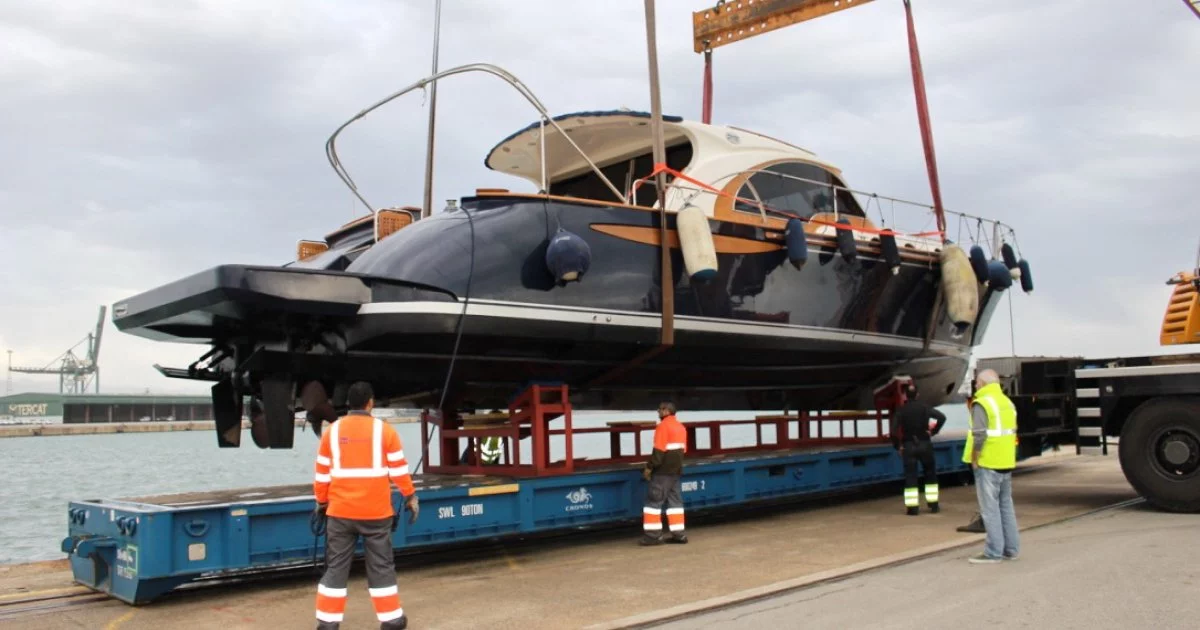Paperwork Perfection: Your Guide to Smooth Boat Shipping

Shipping your boat? So, you’re ready to embark on a new adventure and ship your cherished boat to a different location. Exciting times, right? But hold on, before you set sail on this journey, let’s talk about the essential documentation that will ensure your boat’s safe and hassle-free transportation.
Think of paperwork as your boat’s travel passport and legal guardian. It might not be the most thrilling part of your journey, but trust me, it’s the backbone of a successful shipping operation. Skipping or messing up the paperwork can lead to delays, unexpected detours, and legal headaches.
So, let’s dive into the nitty-gritty of what you need to know.
What Paperwork Do You Need to Ship a Boat?
Bill of Lading (BoL)
This is like the handshake deal between you and the carrier. The Bill of Lading (BoL) is your shipping contract, covering everything from departure and arrival ports to boat specs and payment terms. It’s the go-to document if anything goes sideways, so make sure you’re on the same page before signing.
Title and Ownership
Imagine showing up at the airport without your ID – not fun, right? Well, your boat needs its ID too. Title and ownership documents prove that you’re the rightful captain of this ship. Keep these updated and shipshape to avoid any ownership tangles during transit.
The Shipping Agreement
From sorting out who’s responsible for what in terms of liability and insurance coverage to dealing with any special requests, the shipping agreement ensures you and the carrier are on the same page. It’s like a detailed roadmap that explains who does what and when they do it.
Customs Clearance
If your boat’s journey travels internationally, customs clearance documents are your ticket to smooth sailing. These papers help customs officials assess taxes and duties and make sure you’re playing by the rules. Skipping this step can lead to some unwanted turbulence.
Insurance and Liability Forms
Life is unpredictable, and so is the open sea. Insurance and liability forms provide a safety net in case of accidents or mishaps during transit. They define who’s responsible for what, giving you peace of mind even if the unexpected happens.
Permits and Regulations
Ahoy, regulatory waters ahead! You might need permits to stay in the clear depending on your route and destination. These could be anything from temporary import permits to environmental nods. Ensure you know what’s required to avoid running aground with the law.
FAQ Corner: Your Burning Questions Answered
Q: What documents do I need for boat shipping?
A: You’ll need the Bill of Lading, ownership documents, shipping agreement, customs clearance papers, and insurance forms.
Q: Why is the Bill of Lading important?
A: It’s your shipper-carrier handshake, detailing the trip’s terms and offering legal protection.
Q: Why do I need ownership documents?
A: To prove you’re the rightful boat owner, preventing ownership disputes.
Q: What’s in the shipping agreement?
A: It spells out who’s doing what during shipping, including liability and insurance coverage.
Q: Do I need customs clearance papers for international shipping?
A: Absolutely, they help customs assess taxes and ensure compliance.
Q: Why do I need insurance forms?
A: These forms provide a safety net in case of accidents or damage during transit.
Q: Are permits necessary for boat shipping?
A: Depending on your route, you might need permits like temporary imports or environmental nods.
Q: How do I make sure my checklist is complete?
A: Research the requirements for your route and regularly update your checklist as you gather documents.
Q: How does accurate documentation help?
A: Accurate paperwork prevents delays, fines, and legal issues, smoothing your journey.
Q: What if I’m confused about the paperwork I need?
A: Reach out to your shipping company or agent for guidance. They’re there to help!
Q: Can the shipping company handle all the paperwork?
A: While they can assist, ensuring accurate paperwork is your responsibility.
Q: Are different boats subject to different documentation rules?
A: Yes, different boats might have unique requirements. Consult the experts for guidance.
Q: What if I hit a roadblock with permits or paperwork?
A: Seek professional assistance or legal advice to navigate these challenges.
Q: When should I start gathering documents?
A: Start early to avoid last-minute stress. The sooner you’re shipshape, the smoother the sail.
Q: Can bad paperwork cause delays or issues?
Absolutely, incorrect or missing paperwork can lead to delays, fines, and unexpected detours.
Anchoring Your Understanding
So, as you prepare to set your boat on its next voyage, remember that paperwork isn’t just about forms and signatures. It’s about ensuring your beloved vessel reaches its destination smoothly and legally. By embracing the paperwork process, staying organized, and collaborating with experts, you’re on course for a successful boat shipping experience. Bon voyage, and may your boat’s journey be as smooth as the open sea!
